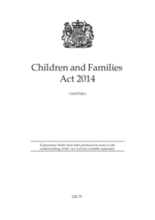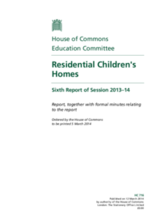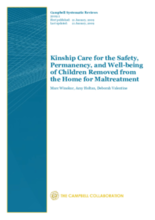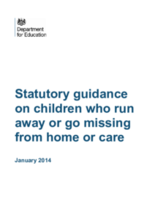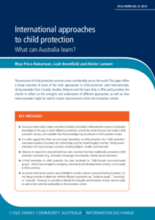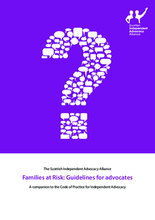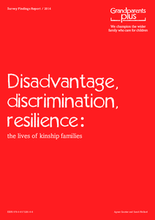

Displaying 1491 - 1500 of 1649
This paper discusses participatory research with young people who are leaving public care in Finland to begin independent lives.
An Act in the United Kingdom to make provision about children, families,and people with special educational needs or disabilities; to make provision about the right to request flexible working; and for connected purposes.
In this review, the authors highlight evidence drawn from research in Australia, the United Kingdom, Canada, Ireland, and the United States, on the impact of growing up in care beyond the early twenties.
This report examines the proposed reforms for the regulation of children’s residential care in England.
This systematic review published by the Campbell Collaboration reviewed controlled experimental and quasi experimental studies in which children removed from the home for maltreatment and subsequently placed in kinship care were compared with children placed in non-kinship foster care for child welfare outcomes in the domains of well-being, permanency, or safety.
This online resource provides an overview of research, conducted by the European Union Agency for Fundamental Rights (FRA), on national child protection systems in the 28 European Union (EU) Member States.
This guidance from the UK Department for Education sets out the steps local authorities and their partners should take to prevent children from going missing and to protect them when they do go missing.
This paper offers a broad overview of some of the main approaches to child protection used internationally. Using examples from Canada, Sweden, Belgium and the Gaza Strip, it offers policy-makers the chance to reflect on the strengths and weaknesses of different approaches, as well as how these examples might be used to inspire improvements within the Australian context.
This document has been produced to provide guidance for advocacy organisations and advocates delivering independent advocacy to families at risk.
This report presents findings from the first survey focussing on the challenges faced by kinship carers in the UK in bringing up children and their experience of discrimination and stigma.

